

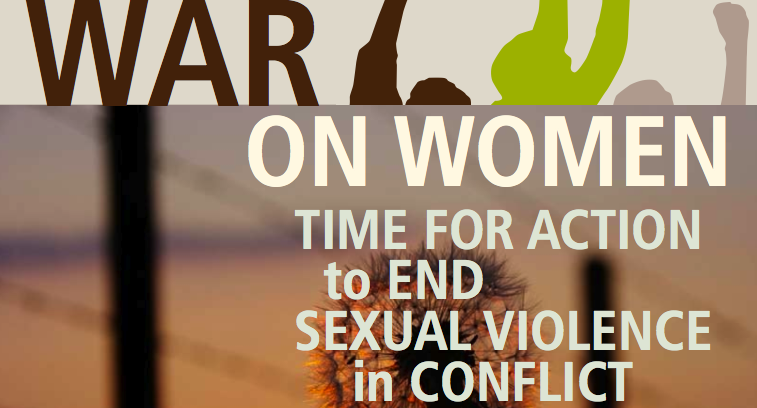
LIBYA – Decree Passed to Pay Reparations to Victims of Rape As A War Crime
This is taken from an article by Zoë Schlanger – 6/20/14 A decree issued in Libya would recognize rape committed during that country’s revolution as a war crime and pay rape survivors reparations, according to two sources who have worked closely with the Libyan government in developing the policy. An initial decree issued in February sought to recognize the mass rapes perpetrated during the 2011 revolution as war crimes, but it required congressional approval to move forward. The new decree, however, bypasses Libya’s congress and establishes a commission to begin evaluating who will be given the financial and medical support, and the scope of the reparations to be provided, according to war crimes lawyer Céline Bardet, who reviewed the policy drafted by Libyan Justice Minister Salah al-Marghani. The new decree also makes all rape victims under Qaddafi’s regime eligible for the compensation, not just people who were raped during the 2011 uprising, Bardet tells Newsweek. Following the uprising that toppled the regime, former fighters who suffered war crimes became entitled to compensation. The International Criminal Court says it gathered evidence that Qaddafi’s forces systematically raped men and women during the uprising, and a U.S. envoy in Libya said that soldiers in Qaddafi’s army were issued Viagra with the express purpose of raping women. Yet rape was not classified as a war crime for the purposes of reparations, until now. Souad Wheidi, a Libyan and the head of the human rights nongovernmental organization Observatory of Gender in Crisis, says her group has been pushing for three years for this policy. She and her colleagues have video testimony from women who...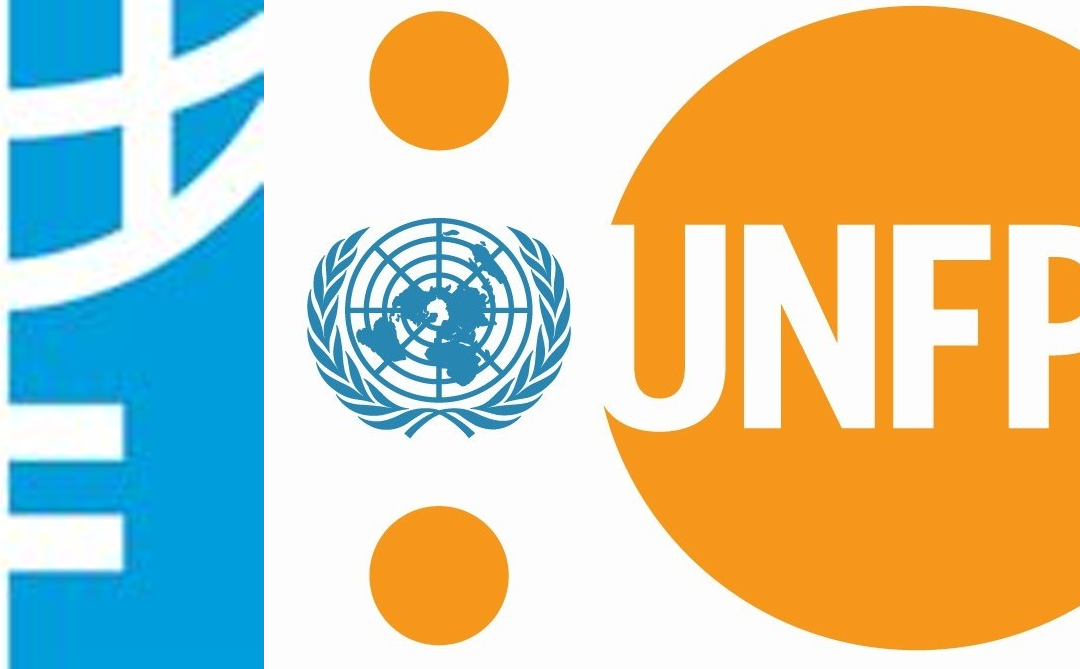
UNFPA and UN Women Launch Joint Global Programme on Essential Services for Women and Girls Subject to Violence
UNFPA, the United Nations Population Fund, and UN Women are joining forces to launch a new programme that will improve the quality of and access to essential services that respond to the needs of women and girls subjected to violence. The four-year Joint Global Programme on Essential Services for Women and Girls Subject to Violence aims to reach global consensus on standards and guidelines for delivering quality essential services, providing technical advice to implement them, and building the capacity of service providers to deliver them…. See more...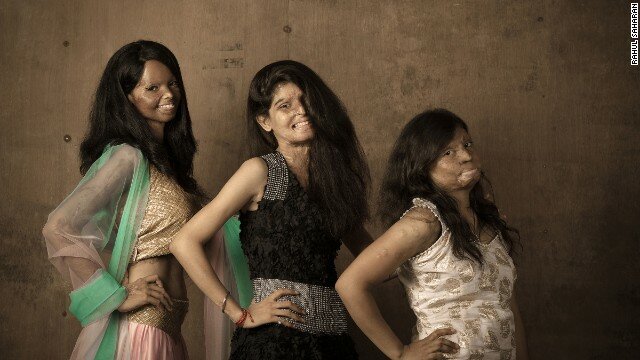
India acid attack survivors pose for ‘ground breaking’ photo shoot-CNN
It was a photo shoot that caught India’s attention. Five courageous survivors of acid attacks posed for portraits. In a country where victims of such attacks do not dare to come out of hiding, or show their disfigured faces in public, this was a “ground breaking” photo shoot, participants said. “After the acid attack I never took photos,” Rupa, one of the models and a survivor said. “When the photos got circulated in the media, people started calling to inquire about me, I felt so good. After the photo shoot I want to go out meet more people.” For the complete article and gallery photos, go here: CNN...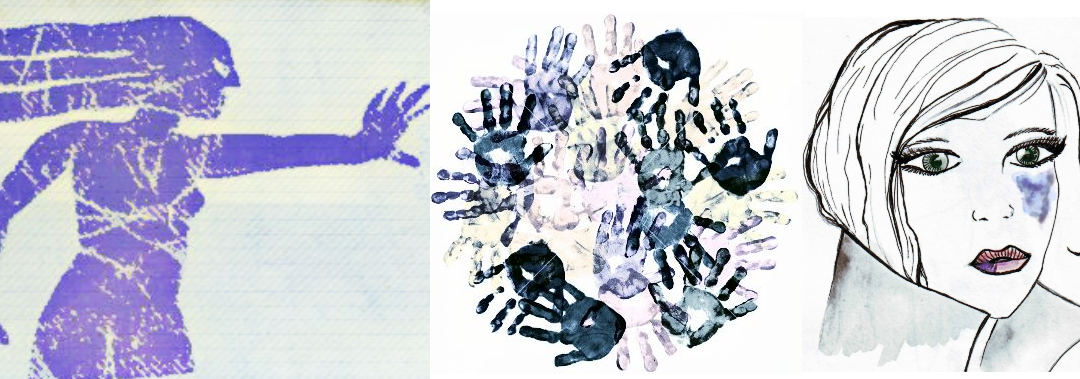
Different Forms of Femicide
from: http://femicidenews.com/about-femicide/different-forms-of-femicide/ 1. The murder of women as a result of intimate partner violence A study from the UNODC has revealed that in many countries, intimate partner and/or family-related homicide is the major cause of female homicides. Intimate-partner femicide is likely to be significantly underreported. One study from the Daphne Programme indicates that there are approximately 3,500 intimate partner violence-related deaths every year in Europe. In fact, women account for more than 77% of all victims of intimate partner and/or family related homicide, with women between the ages of 35 and 44 at noticeably higher risk. In 2010, 127 women were killed by their partner in Italy. Roughly two women per week are killed by an intimate partner in the United Kingdom. In Honduras and Costa Rica, 60% of femicides are perpetrated by an intimate partner or male family member. In Mexico, 60% of women murdered by their partners had previously reported domestic violence to public authorities. The United States Department of Justice observed that in 2008, firearms were the most commonly employed weapons used by men to murder women in the United States. Male intimate partners were responsible for nearly two-thirds of the murders. A doctor of the American Medical Association stated that, “one-third of all women’s injuries coming into our emergency rooms are no accident. Most are the result of acts of violence. And frequently they occur over and over until the woman is killed.” The main problem is that domestic and/or intimate-partner violence is not visible, as violence is widely accepted as a legitimate part of family life by both women and men. 2. The torture and misogynist slaying of women Misogyny encompasses “an entrenched prejudice against women”, as well as a pathological hatred...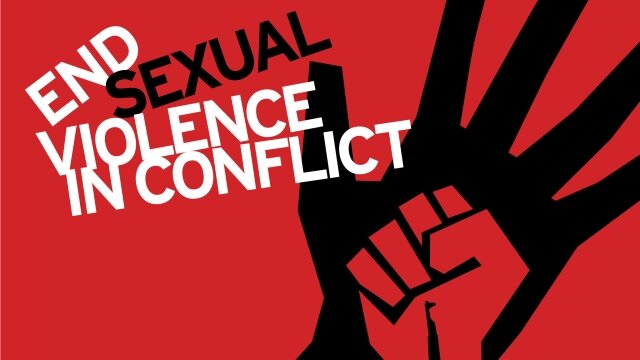
Sexual Violence in Combat and War
INDIVIDUAL RIGHT TO REPARATION FOR VICTIMS OF SEXUAL VIOLENCE DURING ARMED CONFLICT IN INTERNATIONAL LAW – THEORY & PRACTICE “Today civilians are the most affected victims of the waging of war which international law has not been able to prevent yet. Among them the number of victims of sexual violence is increasingly high. Nevertheless, there is still a widespread culture of denial of gender-based violence, and a lack of effective national and international prosecution of the perpetrators, and redress for the victims. The system of mechanisms and the provided access to courts are still incomplete. International law still lacks the important enforcement power to ensure that victims actually receive reparations. It is still in the hands of states to ensure the enforcement of international court decisions in regards to reparations…..Various approaches have shown that reparative justice can be brought via different ways outside the ordinary court system. Nevertheless, women in particular often face normative and practical barriers which prevent them from accessing the benefits of reparation programs. Gender sensitivity and special awareness for victims of sexual violence must be included in transitional justice……Sexual violence is one of the most terrifying violations committed against civilians on a massive scale.” Full 113 page academic...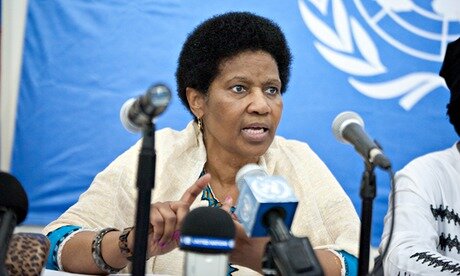
Sexual Violence in War: Women Must Get Reparations-UN Women
Head of UN Women questions failure to compensate women for physical, emotional and economic impact of war. By Liz Ford – 11 June 2014 Women who have experienced sexual violence in conflict need help to get their lives back on track in the form of compensation for the loss of land and livelihoods caused by fighting, as well as psychological support, according to Phumzile Mlambo-Ngcuka, the head of UN Women. While men also experience sexual violence during conflict, more than 70% of reported cases relate to women and girls, said Mlambo-Ngcuka. The impact of fighting is felt on multiple fronts for women – physically, emotionally and economically. However, when conflict ends, they often miss out on compensation. “Combatants, those involved in fighting … get compensation, even if they are not fighting on the side of the national army,” said Mlambo-Ngcuka, who on Wednesday presented a new set of guidance notes on reparations at the ending sexual violence in conflict summit in London. “Those who kill get support. Those whose lives are ripped apart, don’t.” She added: “Once the perpetrator is behind bars, a woman’s life is not healed at that point. The tragedy continues for her. The stigma she lives with, and her economic wellbeing, are significantly compromised … she needs psycho-social support and material support to get her life back. Women need collateral, access to finance.” The UN guidance note on reparations for conflict-related sexual violence reinforces the message that compensation is a right. It offers advice on distributing payments and highlights the obstacles faced by women and men in accessing reparations. <– Read the Entire Article...
Implementation of the Italian Law
by Anna Costanza Baldry, PhD Every two, three days the Italian statistics say that a woman is killed by her partner or ex. And this goes on regardless of new laws and apparently new strategies. Husbands, boyfriends, lovers, current and former, who for various reasons, find in violence, even lethal, a means decisive to their problems and frustrations. On August, 7th, 2014 in a lively press conference, the Italian Minister of the Interior, Agelino Alfano, reported tha one year following the Decree-Law No. 93 August 14, 2013, containing urgent provisions for safety and for the contrast of gender-based violence, as well as civil protection and compulsory administration of provinces, converted into law, with amendments, number 119 of the October 15, 2013, the so called law on femicide., things improved and his data presented demonstrate the effectiveness of the law. Unfortunately there is something wrong in his report. View the Full Document Implementation of the Italian...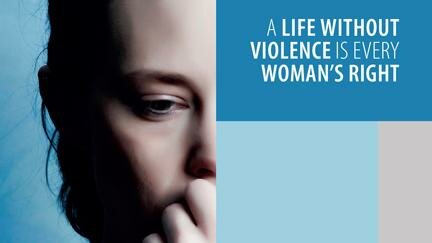
Council of Europe Convention: A roadmap to interpret the solutions to violence
by Anna Costanza Baldry, PhD The Council of Europe Convention entered into force on August 1st, 2014. One might think that women will be less at risk of suffering violence, those who are already victims will be more protected, Justice will be quicker in having to do with these cases and more certain, children more aware of the risks that undermine in misogynous and odd relationships and who abuses, the stalkers and rapists finally change register, they will help and will stop to rape and kill women. But gender-based violence isn’t a fairy tale, for centuries exists and persists. It was never cleared with the entry into force of a rule, or by introducing only partly effective policy with counter-action and prevention, although prudent from international organizations. An evidence is that if in 2014 still we need a Convention that’s so well articulated to remind us what and how many areas on which operate for a true structural change in contrast to gender-based violence, this means that even if the road is built, still must be traveled (Baldry, 2014). To date, has Italy all the cards in good standing, is ready? Last year ratified the Convention, has hastily put together rules on so-called femicide (Law 119/2013) in order to respond to some of the articles ratified in the Convention, putting in a broader Decree-Law 93/13 containing rules on the protection of order and public security, Civil Protection and for the extension of the compulsory administration of provinces. Sure, has respected what is required in some of the articles ratified in the Convention, on the other has yet to engage:...
Gender Violence: Femicides in Argentina
by Ana María Fernández This paper presents the research results on femicides carried out in Argentina during the period 2008-2009 (Fernández et al., 2009). We emphasize one of the main outcomes: suicide-homicide tension linked to inconsistencies in keeping case records. From this point, we question how femicides can be covered up, among patriarchy, ferociousness and State abandonment. Gender violence femicides in...
« Older Entries



